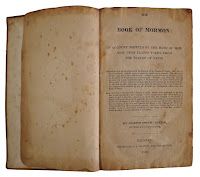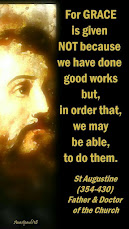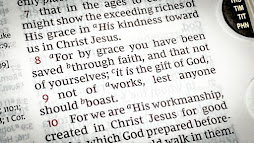 I
am troubled by how little people seem to know--or
care--about history and context. Our current social climate encourages
partakers of online media to develop stories about other people and
about the past without questioning those stories or learning more. Checks against the resulting imposed narratives--"Is that
really within your purview?" "Do you have enough information?"
"Shouldn't you find out more first?"--are bypassed to deliver
(supposedly caring, well-intentioned, emotionally justified and allegedly righteous) verdicts of others. Those verdicts often include labels, which labels appear to align with what I call "first
cause," a modern-day version of original sin:
I
am troubled by how little people seem to know--or
care--about history and context. Our current social climate encourages
partakers of online media to develop stories about other people and
about the past without questioning those stories or learning more. Checks against the resulting imposed narratives--"Is that
really within your purview?" "Do you have enough information?"
"Shouldn't you find out more first?"--are bypassed to deliver
(supposedly caring, well-intentioned, emotionally justified and allegedly righteous) verdicts of others. Those verdicts often include labels, which labels appear to align with what I call "first
cause," a modern-day version of original sin:
Everything has gone wrong due to an inherent flaw in a person, plan, or social order. And one of those inherently flawed components is you!
Due to meaning-shorn-of-context, The Book of Mormon steadily seems subjected to
a self-help manual approach, which leaves it open to both subjective whimsy and "I'm so appalled" criticism. It is judged, perhaps as useful; perhaps as injurious.
In fairness, for much of history, the "everything is all about us" approach was adopted by believers and doubters as they used the scriptures to talk about other stuff, especially themselves. The approach lends itself to fresh and thought-provoking dialog. It even lends itself to social and religious change!
It also, unfortunately, lends itself to
"since everything is relative and nobody can really know anything, you
should believe about this passage what the 'expert' or 'proper'
leader/authority/scholar/shouting person tells you to believe."
The "believe what you're told" approach
doesn't work for me, whatever the identity of the lecturer. I far prefer context because I admire people of
the past and believe they deserve to be understood as more than
participants in an ideology or springboards to the reader's ego or springboards to the grinding of an axe.
The context for The Book of Mormon, of course, is difficult and controversial. As stated below, this blog will not address the issue of The Book of Mormon's translation. I have no investment in that argument in any direction. The primary question behind each entry is, rather, What religious climate existed at the publication of The Book of Mormon that made it such a satisfying book to its readers?
REGARDING COMMENTS
I began to post these entries in April 2024 on my Papers blog (see Thesis & Talks). I am reposting them from Nephi to Moroni with edits. After all, the more I learn...
Comments
on all my blogs are moderated. On this blog specifically, I will not be
allowing through any comment that focuses either on my character (Why did you write that? I know why you wrote that! You skunk!) or on contradiction (see Monty-Python's "Argument Clinic"). I have a very low opinion of most social media commentary, precisely because it fails to back claims, resorts to ad hominem attacks, and conflates stances with substance.
I
have zero interest in defending what I believe. My beliefs are a matter
between me and God and come down to theology and integrity. If you
would like to express your beliefs, create a blog.
I
have zero interest in arguing over whether one should or should not
like/be inspired by Joseph Smith. I like him. I also think he was a
flawed individual. In fact, I like him because he was flawed. I
will not engage in trying to paint him either as a con-man or a paragon.
I find both approaches utterly dreary. I believe in neither of
them.
I have zero interest in arguing over whether one should or should not be a member of a particular church (any church).
I find conspiracy theories so boring, they make my brain melt.
In sum, comments that do not address the actual points raised within entries, including stated claims and evidence will not be approved. Spiritual exegesis, anthropological insights, and general ponderings will likely be allowed.
Entries may change--as I learn more and more about the nineteenth century!




























